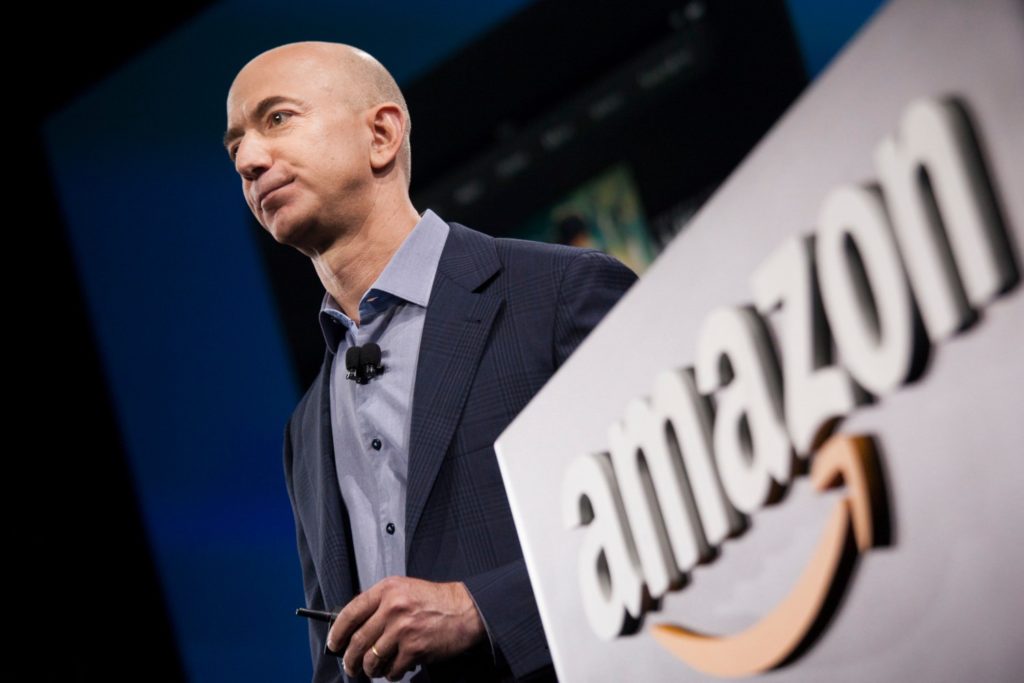Well, it’s certainly not bad. And yet…
Let’s be clear that $10 billion is serious money. And the climate fight can use all the help it can get. But before getting too excited, there are some open issues:
Questions
- What’s the time frame? Is the $10 billion fund established right away or over time? Will grants go out at the 5% per year minimum required by law of foundations, or go faster? ($500 million per year is not bad, but not $10 billion, and time is short.)
- Who decides where the grants go? Does Bezos have a mix of people with serious chops in science, advocacy, business, and so on? Some transparency on this would be great.
- What will the money focus on? Bezos posted that he wants “to amplify known ways and to explore new ways of fighting the devastating impact of climate change” and he will fund “scientists, activists, NGOs — any effort that offers a real possibility to help preserve and protect the natural world.” (btw, can we pause and marvel at how $10 billion was pledged via Instagram, a platform more often used to announce things like, “Kim Kardashian has a new fragrance!”.)
This last question is critical, and I have my opinions about priorities. A few weeks ago, I wrote a big article in Harvard Business Review about next generation corporate climate strategy. In short, I think the top focus should be systematic change via political action. We need policies around the world that promote deep change in how the world powers itself, gets around, eats, and much more.
To be blunt, another of the richest people on the planet, Michael Bloomberg, is on his way to spending a billion to get the Democratic nomination for President. A few hundred million has already gotten him into the running in the big state races coming up. So…what might a billion do if focused on political change? What if Bezos supported candidates — including at the state level, which requires much less money — who support aggressive policies like a price on carbon?
Other priorities could be unlocking more public-private money by seeding broad investments to decarbonize a sector or region or city. Let’s show what’s possible in a test area if you insulate every building, put renewables on every roof, create micro-grids, build out bike lanes and public transit, and so on.
Some other concerns
But even if the money is used in the most strategic way, I have a larger concern that’s more philosophical. Is this really how we should fund societal transformations? Isn’t that partly what governments are for?
Solid estimates say we need perhaps a trillion dollars a year, for many years, to make the low-carbon transition (that’s not quite as much as it sounds, since many trillions go into infrastructure anyway and this is partly about choices, not extra money). The scale of change needed is beyond even the ability of richest people in the world.
Not to put too fine a point on it, but Amazon, the company, has at times paid zero in taxes (on $11 billion in profits in 2018, for example). I get that it’s legal. But it doesn’t really make it right. We have shared needs as a society, and waiting for philanthropy to solve them is not only inefficient, it may not fund important issues that don’t attract the attention of a handful of billionaires.
Jeff Bezos, by making a personal donation is doing the same thing each of us does with our annual giving — just with many more zeros. Most of us can have a larger impact through our work and companies, not through personal philanthropy. And even at $10 billion, that’s true for Bezos also.
He runs one of the biggest companies in the world, with an enormous footprint up and down the value chain. The language of the announcement has a “save the Earth” vibe, rather than tying the fight against climate change to our well-being, economies, and business. So it doesn’t sound like he’s thinking as seriously as he could about what his company can and must do.
Last fall, Amazon, after years of being very quiet on sustainability, announced some big goals to achieve carbon neutrality and to buy a shocking 100,000 electric vehicles. But, as a large group of Amazon employees have pointed out, there are some important holes in their climate strategy — particularly the cloud business helping the fossil fuel industry with exploration. The group Amazon Employees for Climate Justice issued their own statement, saying “We applaud Jeff Bezos’ philanthropy, but one hand cannot give what the other is taking away…When is Amazon going to stop helping oil & gas companies ravage Earth with still more oil and gas wells?”
It’s probably a bit unfair to kick a man who just pledged $10 billion. But they’re not exactly wrong either. We’re at a critical decision point in human history. We have to move away from fossil fuels, not because they’re evil (they did help create the modern world), but because we have better tech now, and they’re killing us. The employees are right that there’s something off about donating money to fight the crisis, but still helping the industry that’s continuing it.
Clearly from my comments, I’m torn. Yes, it’s a good thing and it’s a lot of money, but much remains to be seen. I’m glad employees will hold his feet to the fire to change both his philanthropic focus and how the biggest tool he has, Amazon itself, attacks the world’s challenges.
(Photo by David Ryder – Getty Images)
__________________________
Follow Andrew on Twitter
Subscribe to Andrew’s Blog


